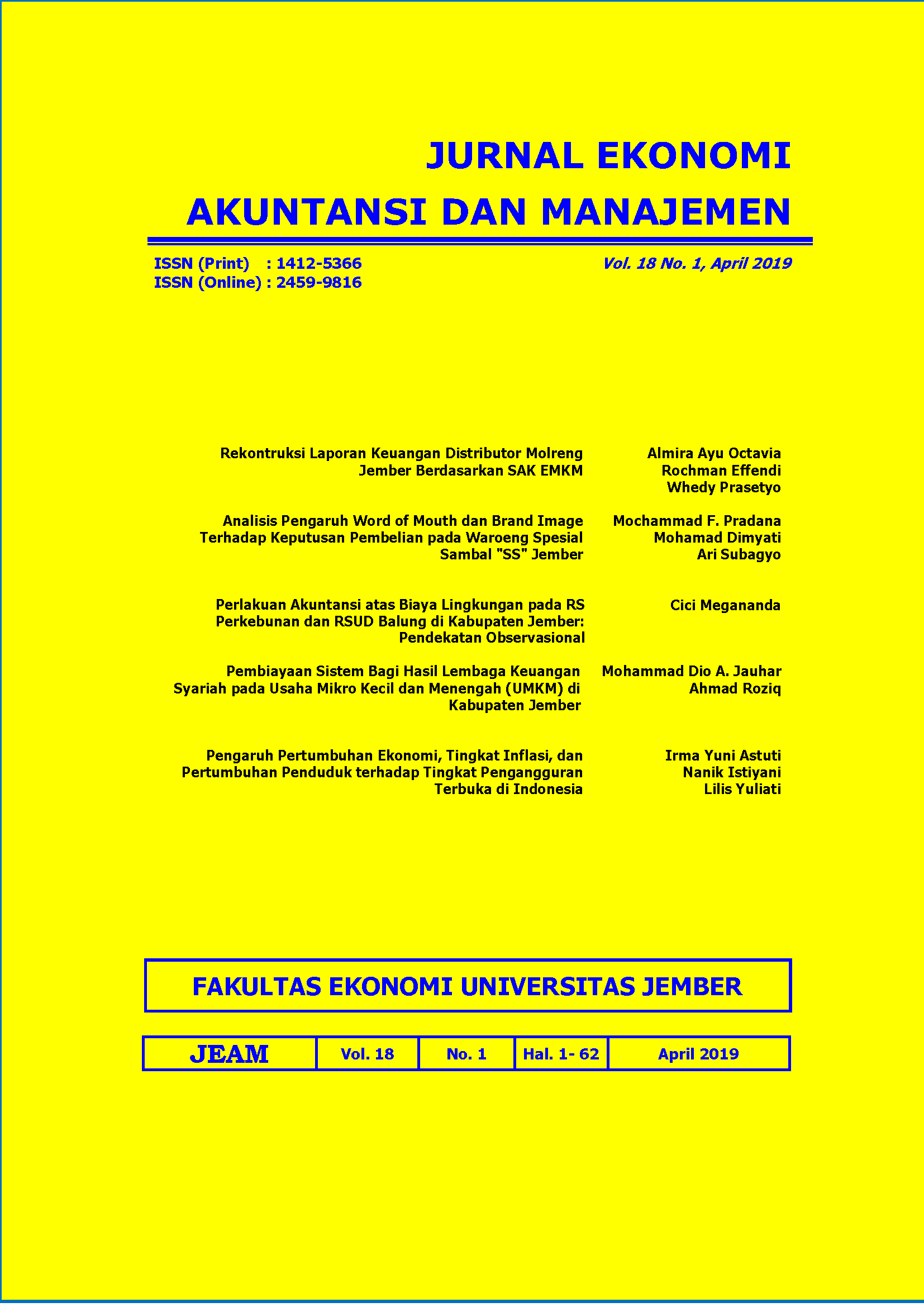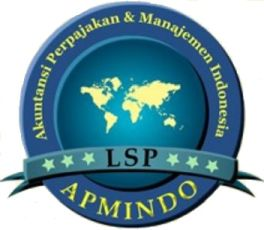Pembiayaan Sistem Bagi Hasil Lembaga Keuangan Syariah pada Usaha Mikro Kecil dan Menengah (UMKM) di Kabupaten Jember
Abstract
This study aims to know the implementation of “pembiayaan bagi hasil” conducted by the islamic financial institutions including the type of financing given outcomes, the problems during the implementation from the islamic financial instituitons and partners view. This study is a qualitative research with multi-case studies approach, the research examines two or more subjects, background, or storage of research data. Stages of research conducted field study/survey is used to find the problem of financing system in Islamic Financial Institutions and their partners. The result shows that overall of seven islamic financial institutions have “pembiayaan bagi hasil” and Musyarakah financing as one of their products in providing services to their business partners. But it its implementation, there are three main problems, they are the lack of financial statement reports, the side streams, and asymetry of information. From the problem, researches gives some solutions, the first is the partner need a mentoring about financial statement report periodically, raise public awareness about honesty culture, and improve the quality and quantity of human resources on islamic financial institutions.
Keyword: Profit Loss Sharing, Islamic Financial Institutions, SMEs
References
Anshori, A. G. 2018. Hukum perjanjian Islam di Indonesia: konsep, regulasi, dan implementasi: UGM PRESS.
Antonio, M. S. i. 2001. Bank Syariah: dari teori ke praktik: Gema Insani.
Antonio, M. S. i. 2010. Ekonomi Syariah dari Teori ke Praktek: Gema Insani: Jakarta.
Bogdan, R., dan S. Biklen. 1982. Methods of social research: Boston: Allyn and Bacon Inc.
Miles, M. B., dan A. M. Huberman. 1992. Analisis data kualitatif: Jakarta: UI press.
Siddiqui, U., H. Patel, J. Mastrototaro, L. Fredrickson, K. Holtzclaw, B. Wenholz, M. Estes, dan F. Saidara. 2005. System for monitoring physiological characteristics: Google Patents.
Sugiyono, D. 2010. Metode penelitian kuantitatif kualitatif dan R&D. xiii.
Sumitro, W. 2004. Asas-asas Perbankan Islam dan lembaga-lembaga Terkait. Jakarta: Raja Grafindo Persada 119.
Susilo, Y. 2012. Strategi meningkatkan daya saing UMKM dalam menghadapi implementasi CAFTA dan MEA. Buletin Ekonomi.
Syafi'i, M. A. 2005. Perbankan Syariah dan Teori Kepraktikan. Jakarta: Gema Insan.
Triyuwono, I. 2004. THE ISLAMIC PERSPECTIVE ON THE CONSTRUCTION OFACCOUNTING DISCIPLINE. Gadjah Mada International Journal of Business 6 (1):131-149.
Peraturan Bank Indonesia Nomor 14 Tahun /2012 Tentang Pemberian Kredit Atau Pembiayaan Oleh Bank Umum Dan Bantuan Teknis Dalam Rangka Pengembangan Usaha Mikro, Kecil, Dan Menengah
Undang-Undang Republik Indonesia Nomor 10 tahun 2008 tentang Perbankan
Undang-Undang Republik Indonesia Nomor 20 Tahun 2008Tentang Usaha Mikro, Kecil dan Menengah (UMKM).
Undang-Undang Republik Indonesia Nomor 10 tahun 2008 tentang Perbankan
Yumanita, Ascarya Diana, 2005. Mencari Solusi Rendahnya Pembiayaan Bagi-Hasil Di Perbankan Syari’ah Indonesia.Buletin Ekonomi Moneter dan Perbankan : 8-50. Jakarta: Bank Indonesia. http//www.bi.go.id/





